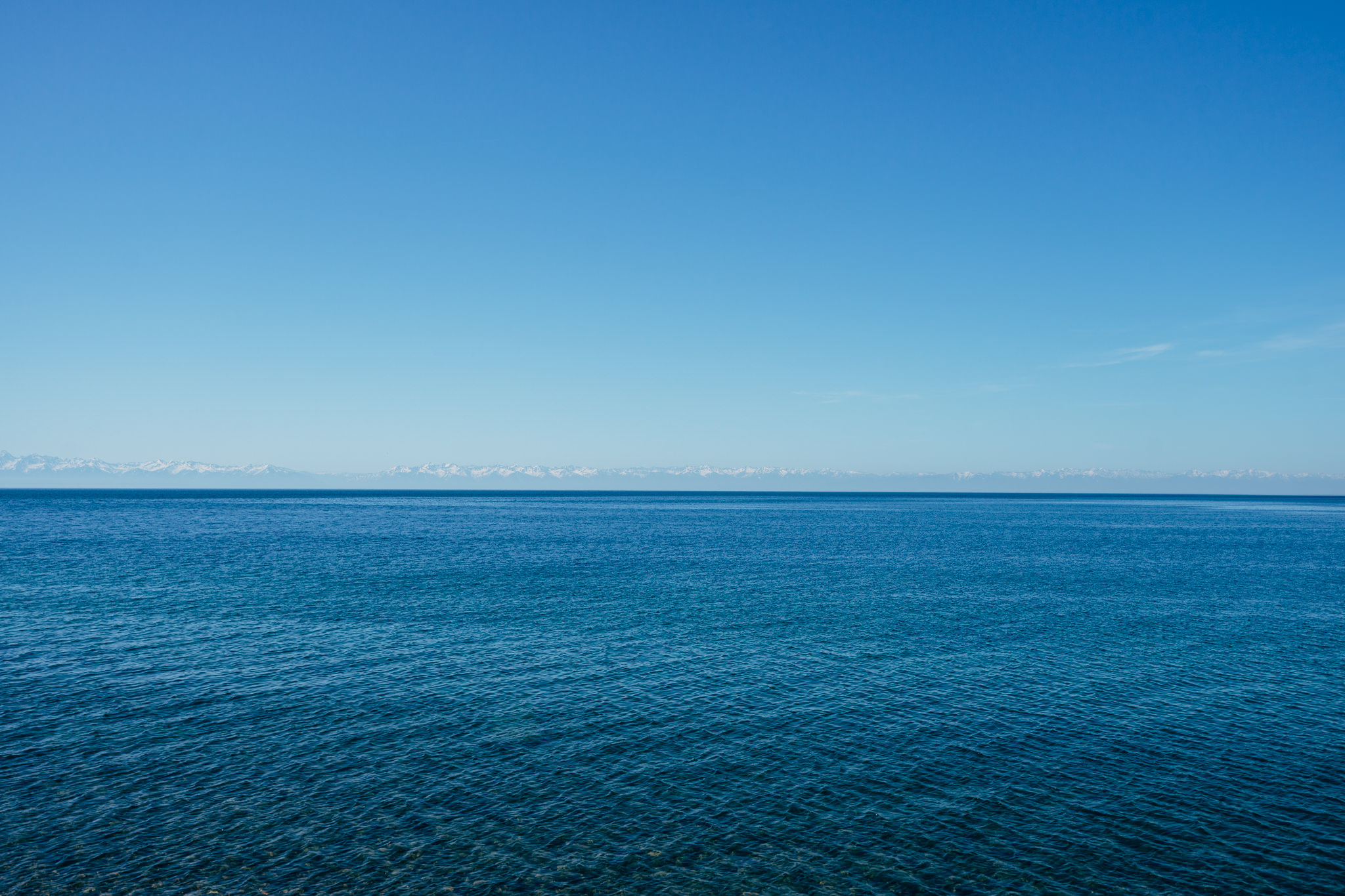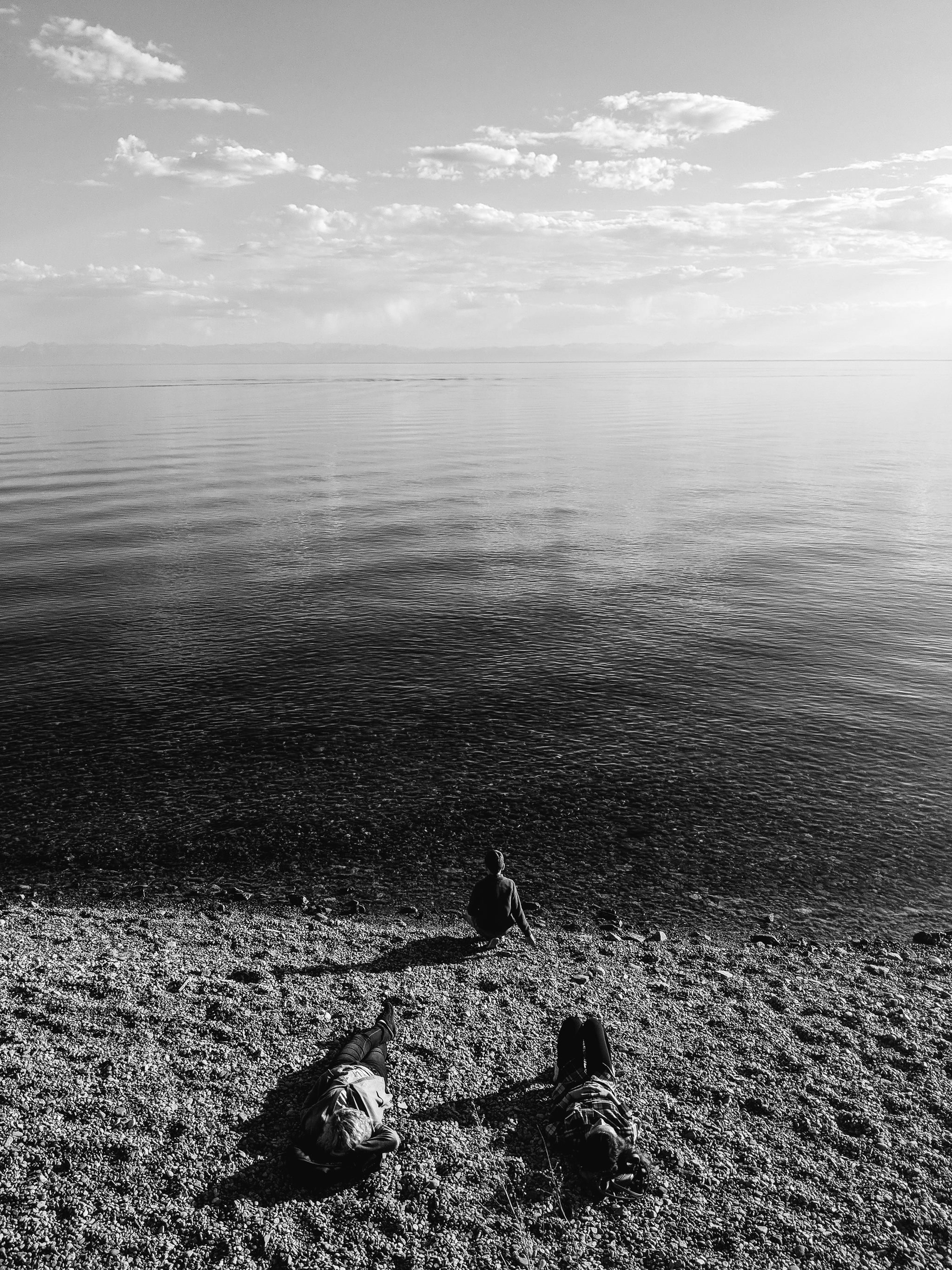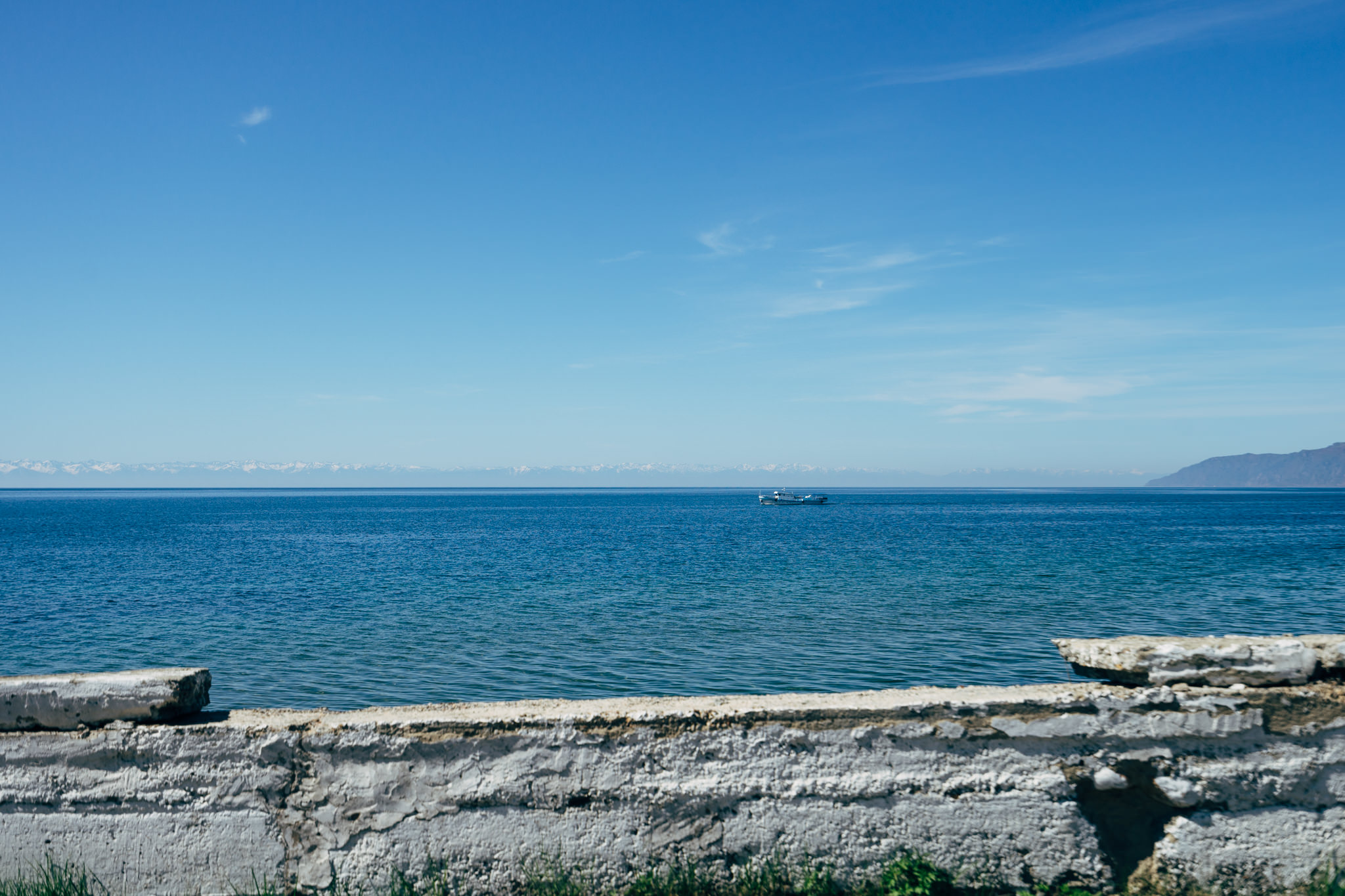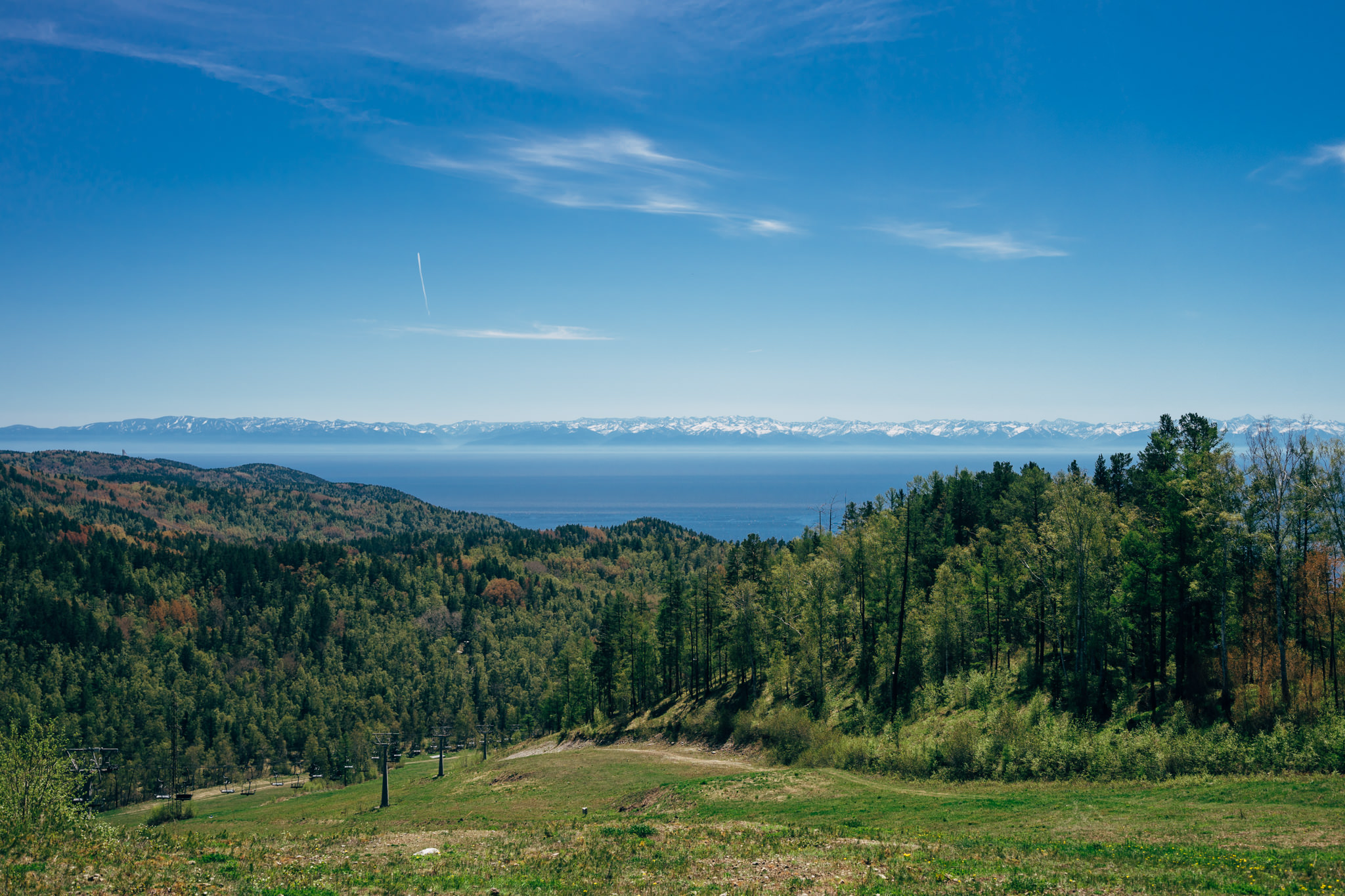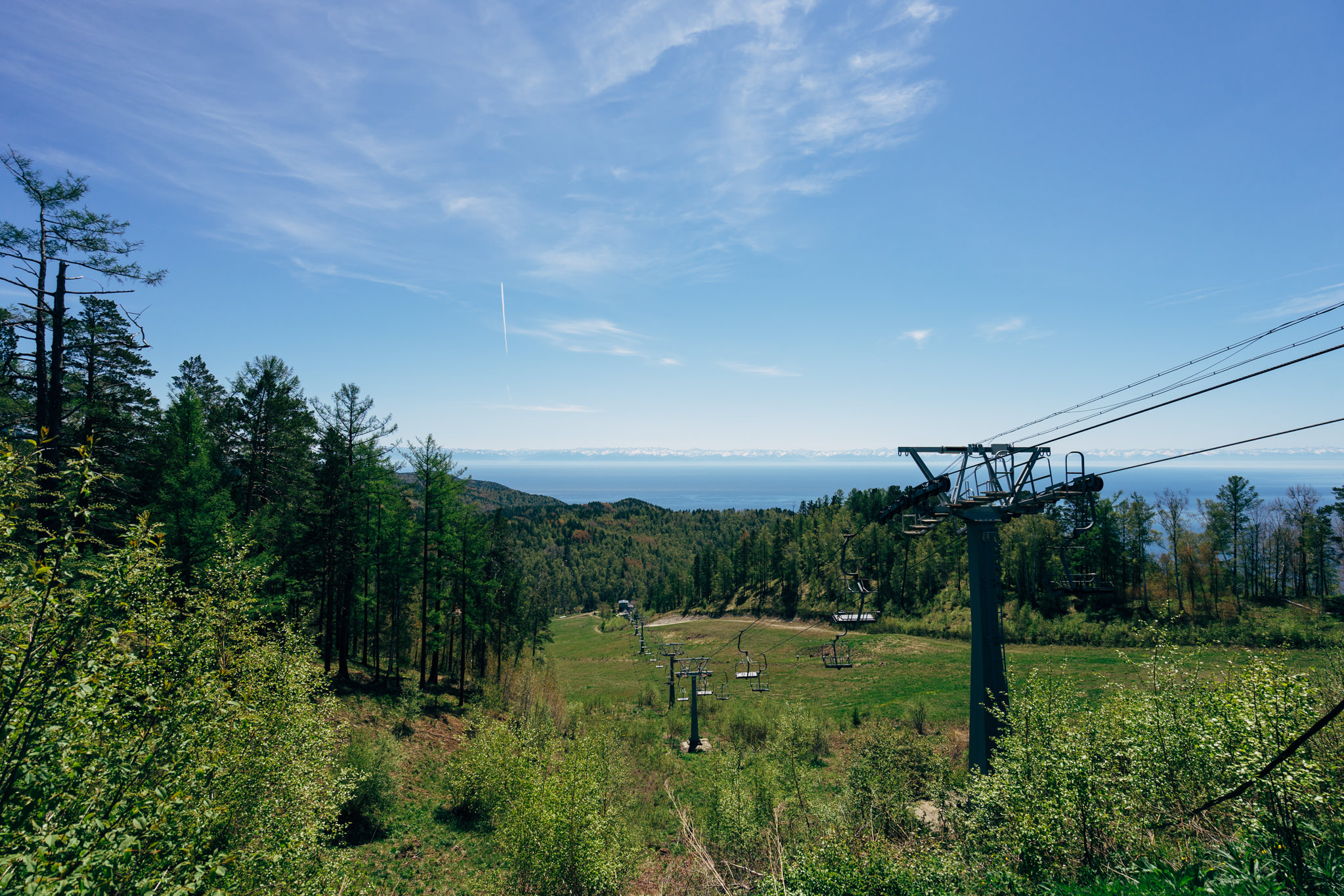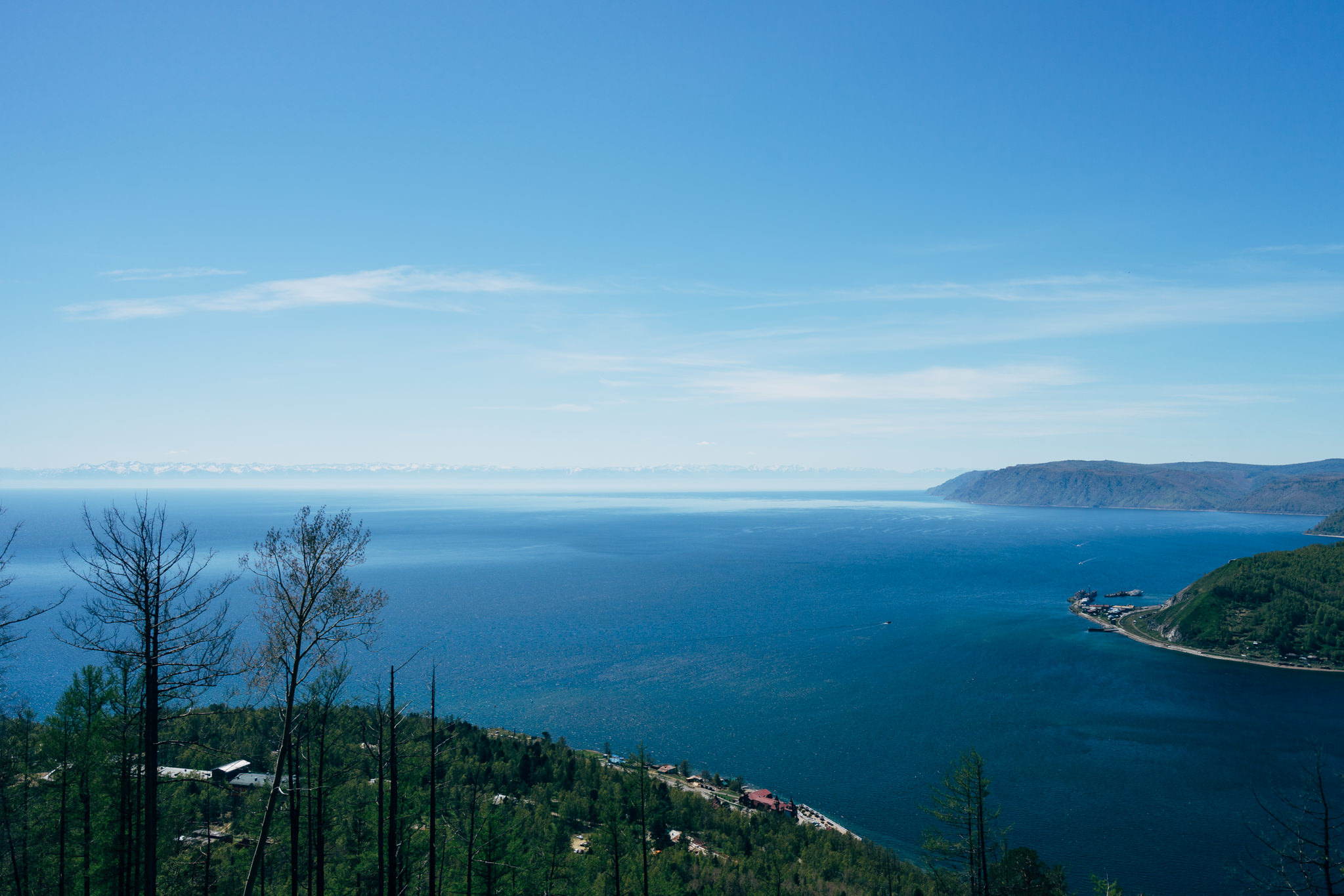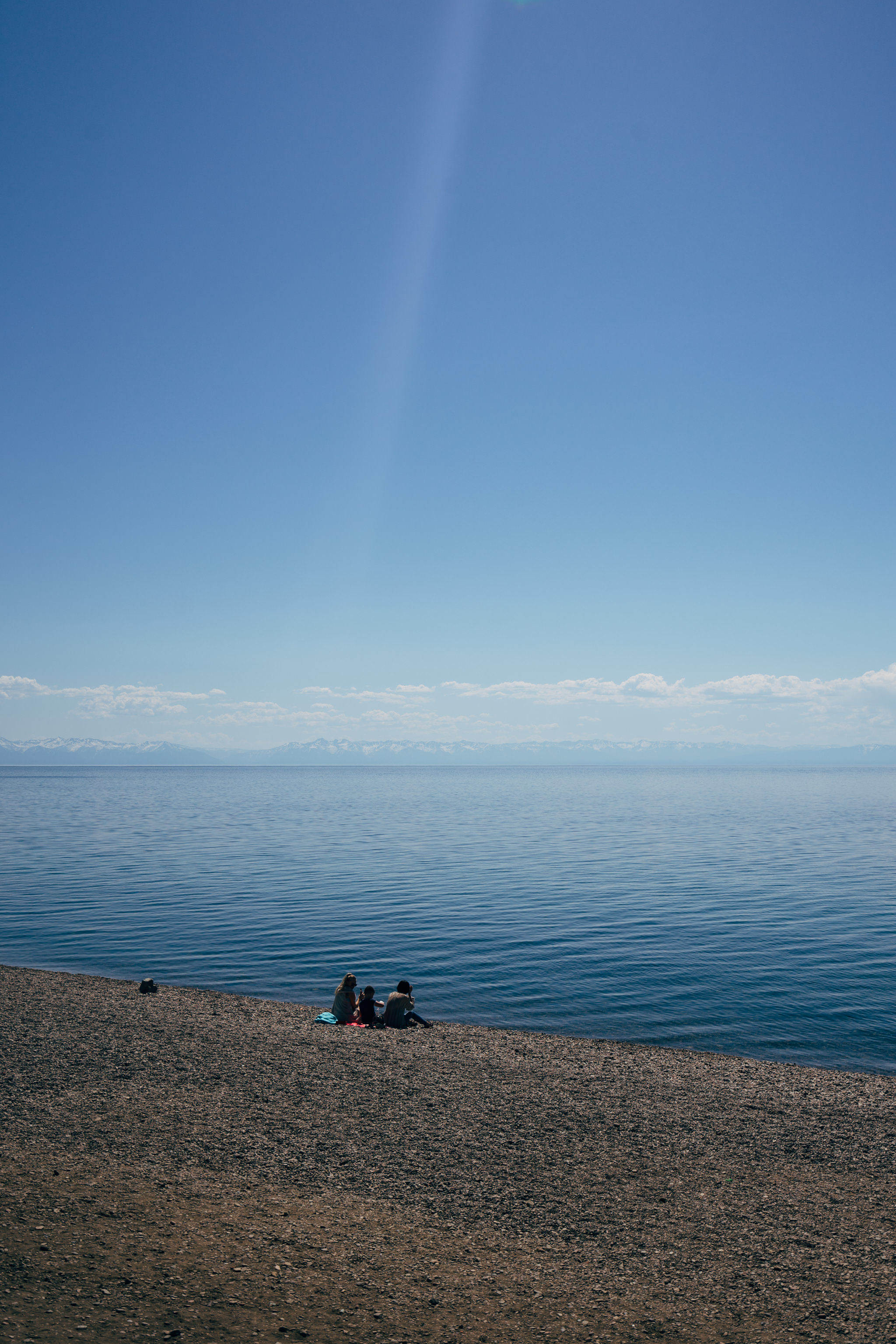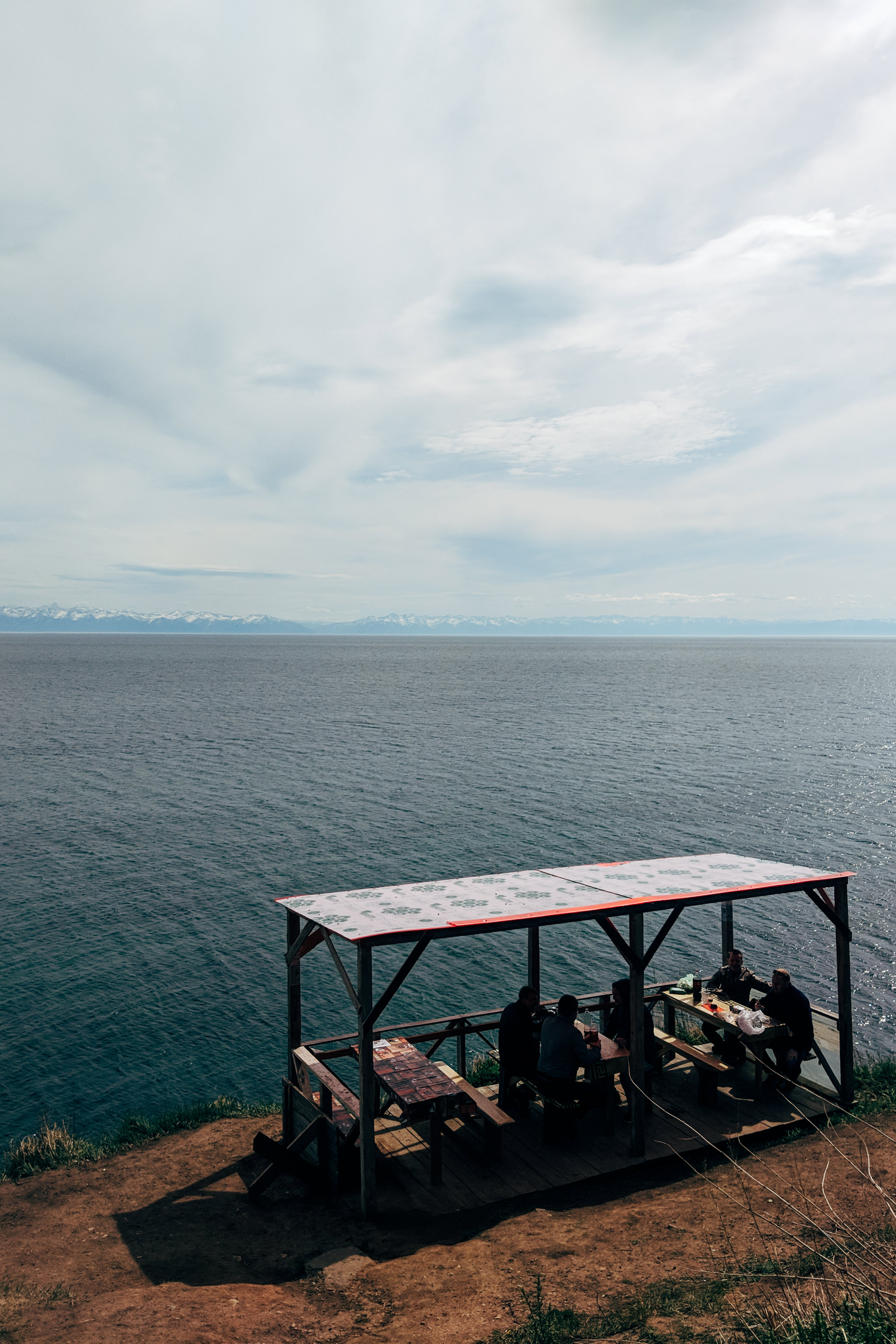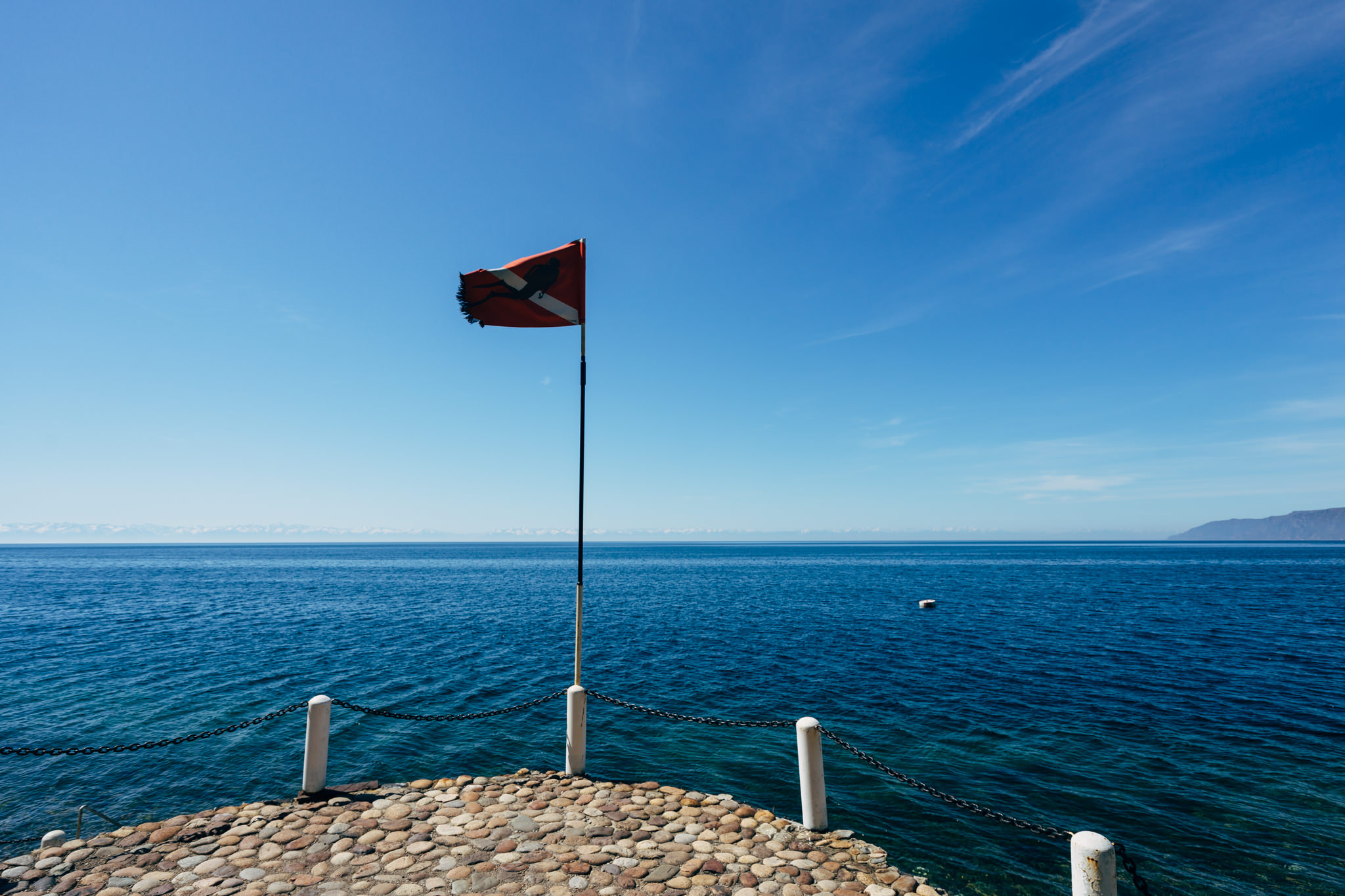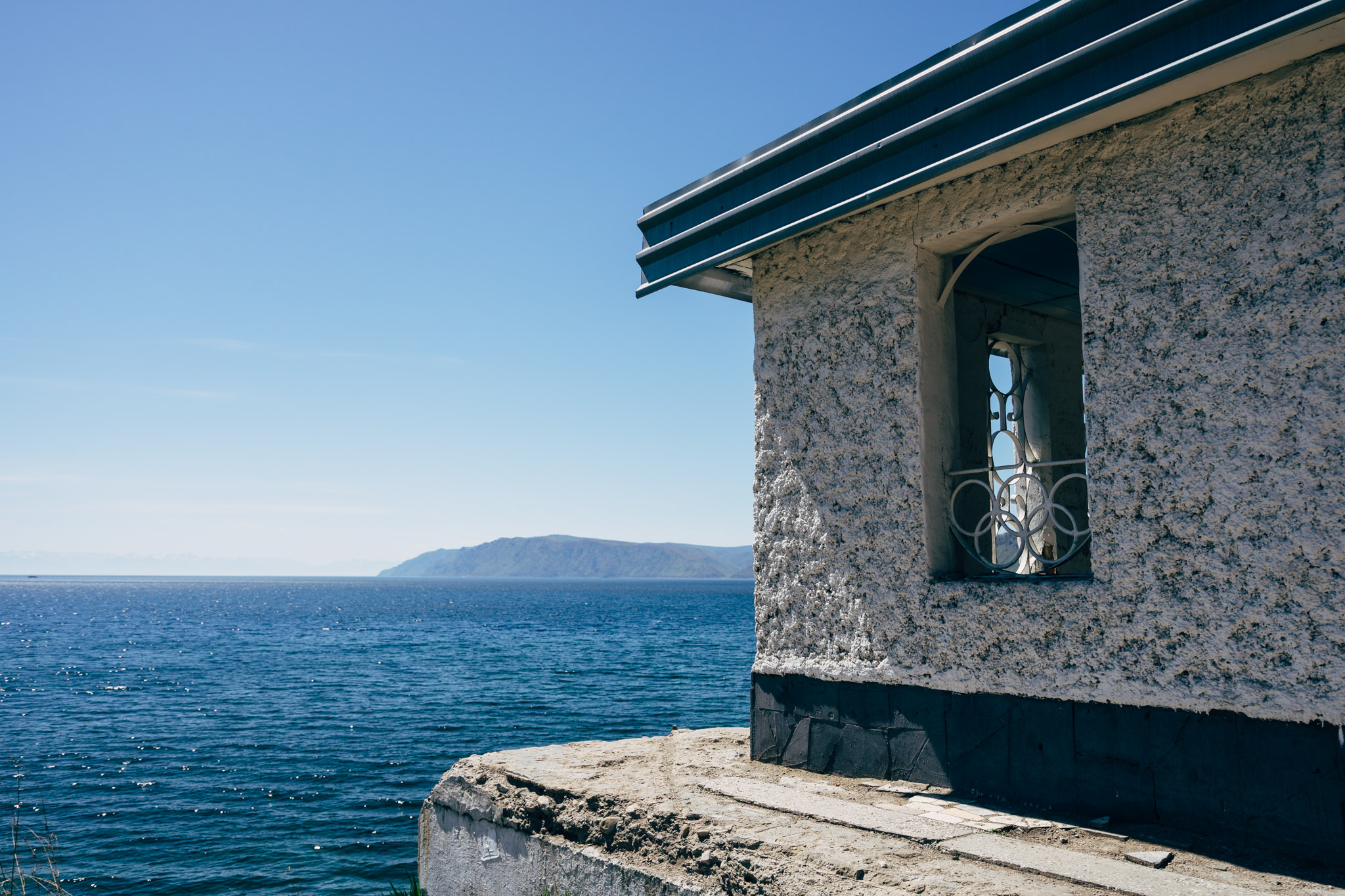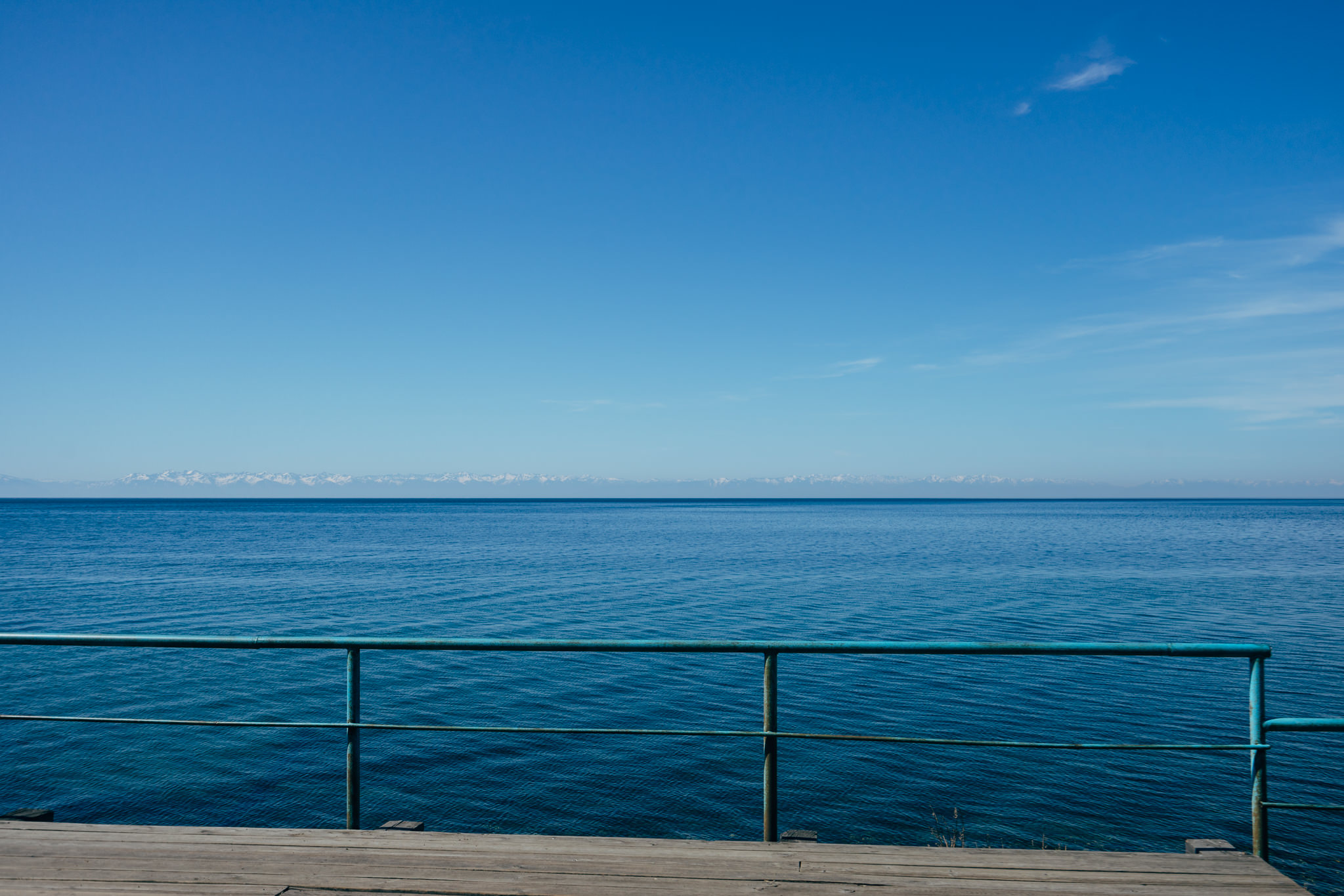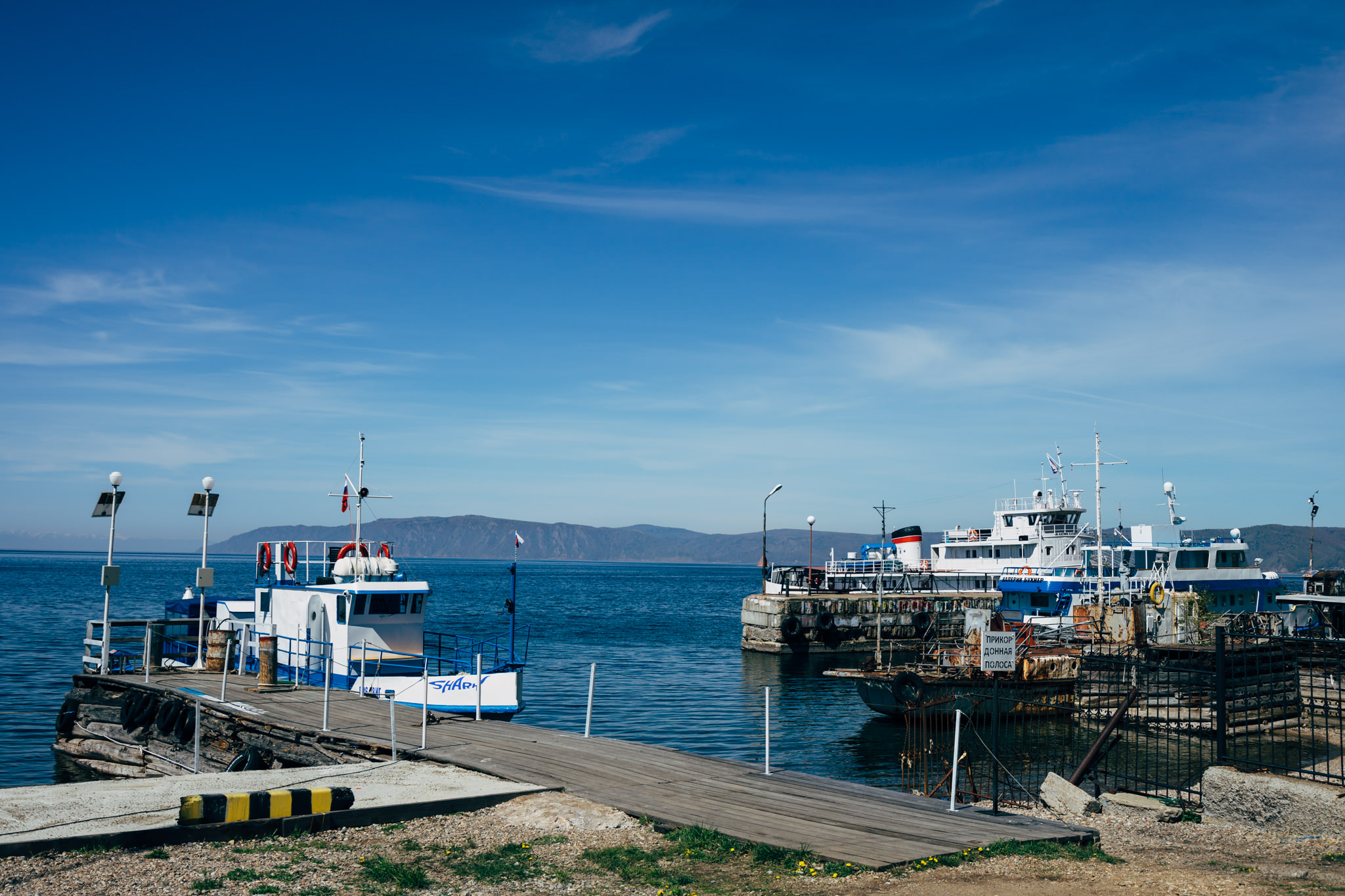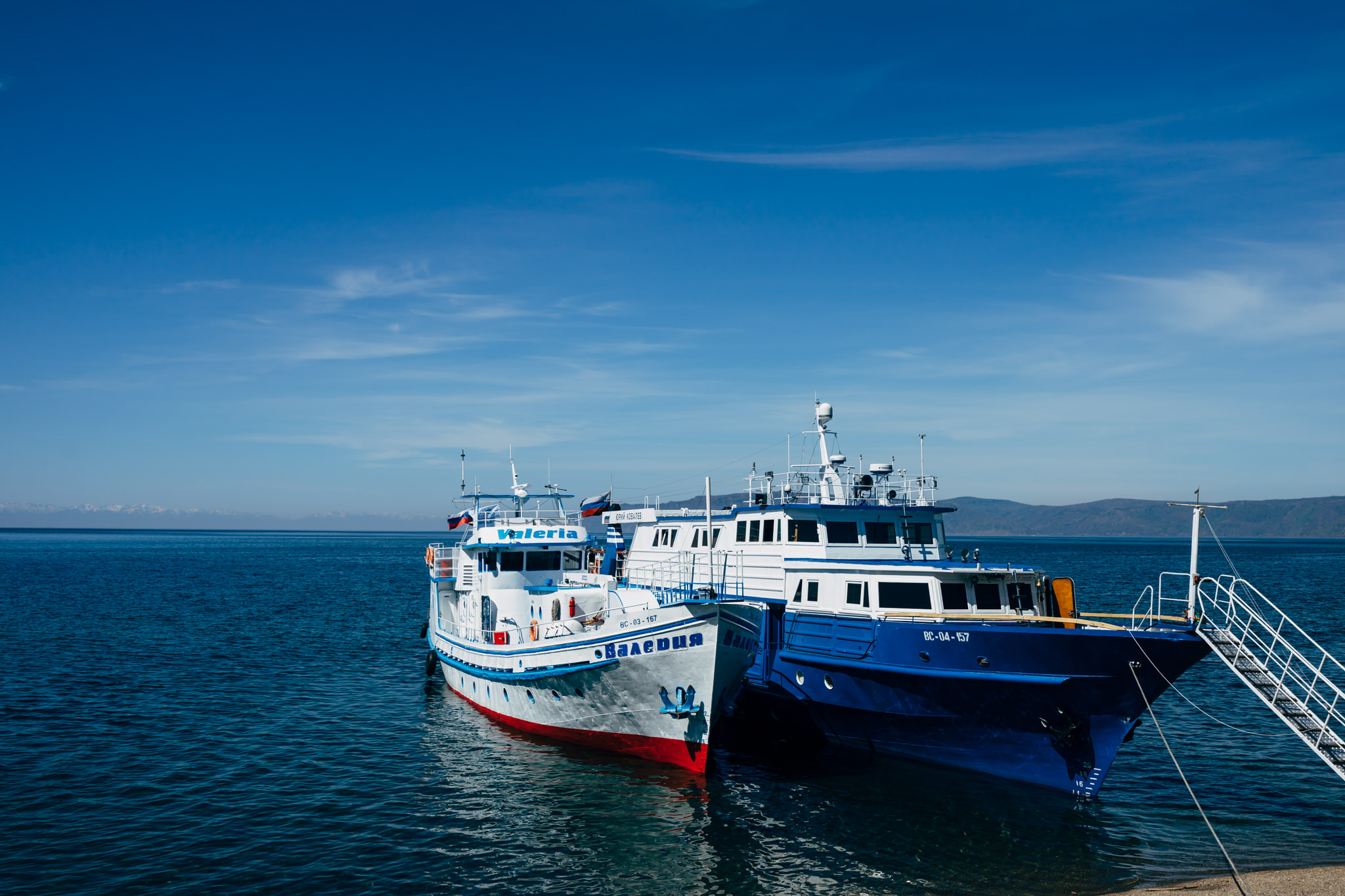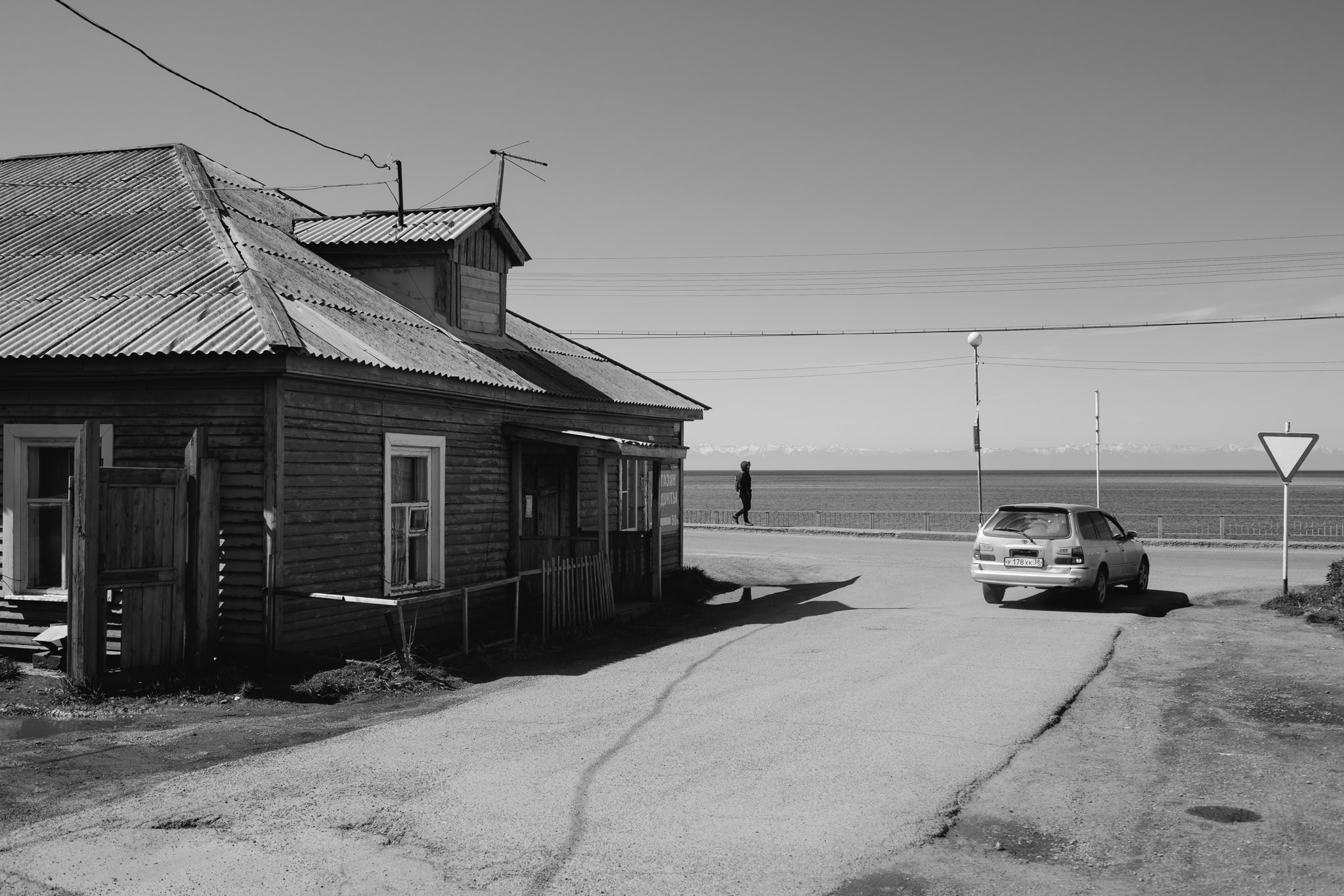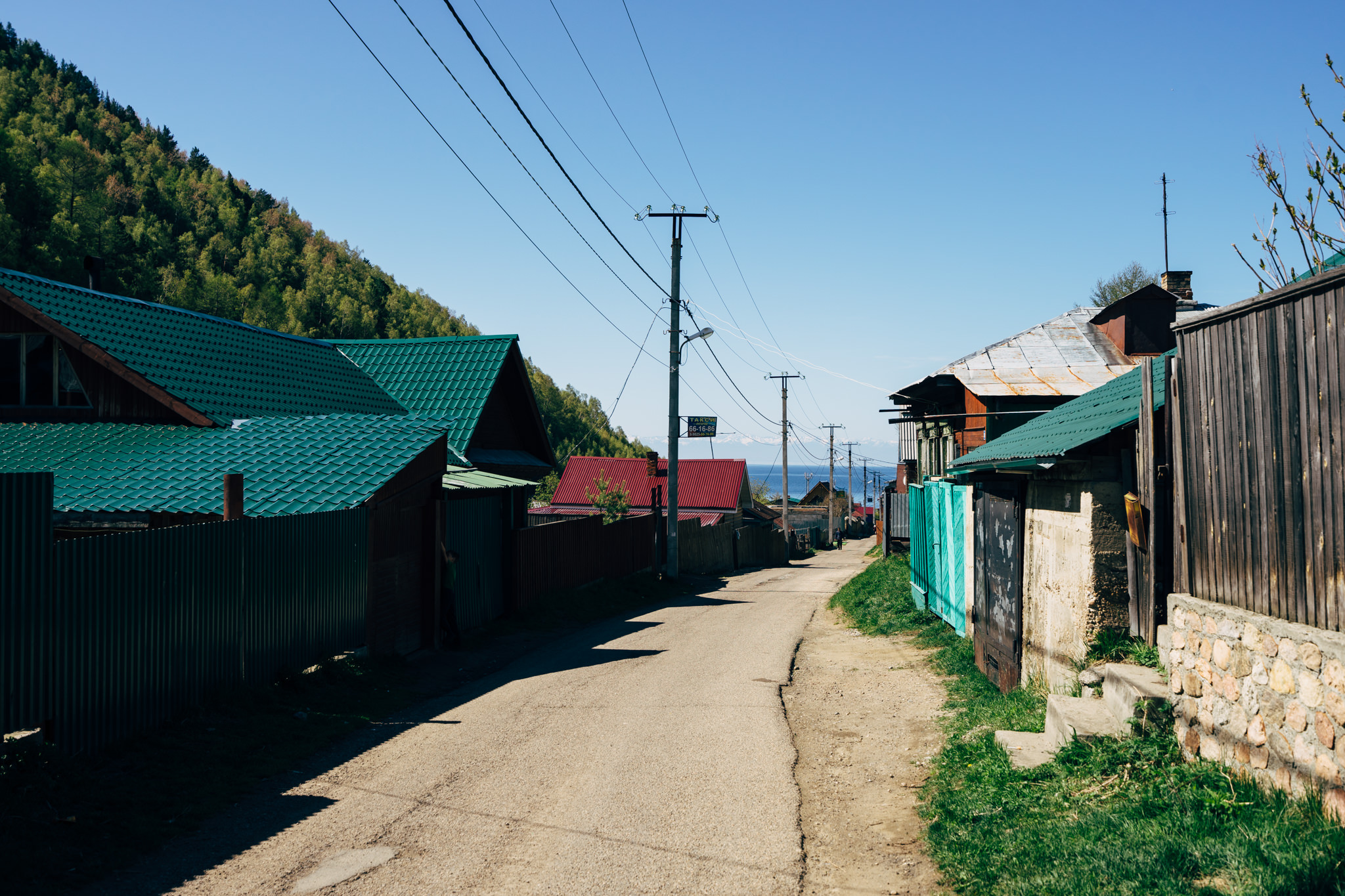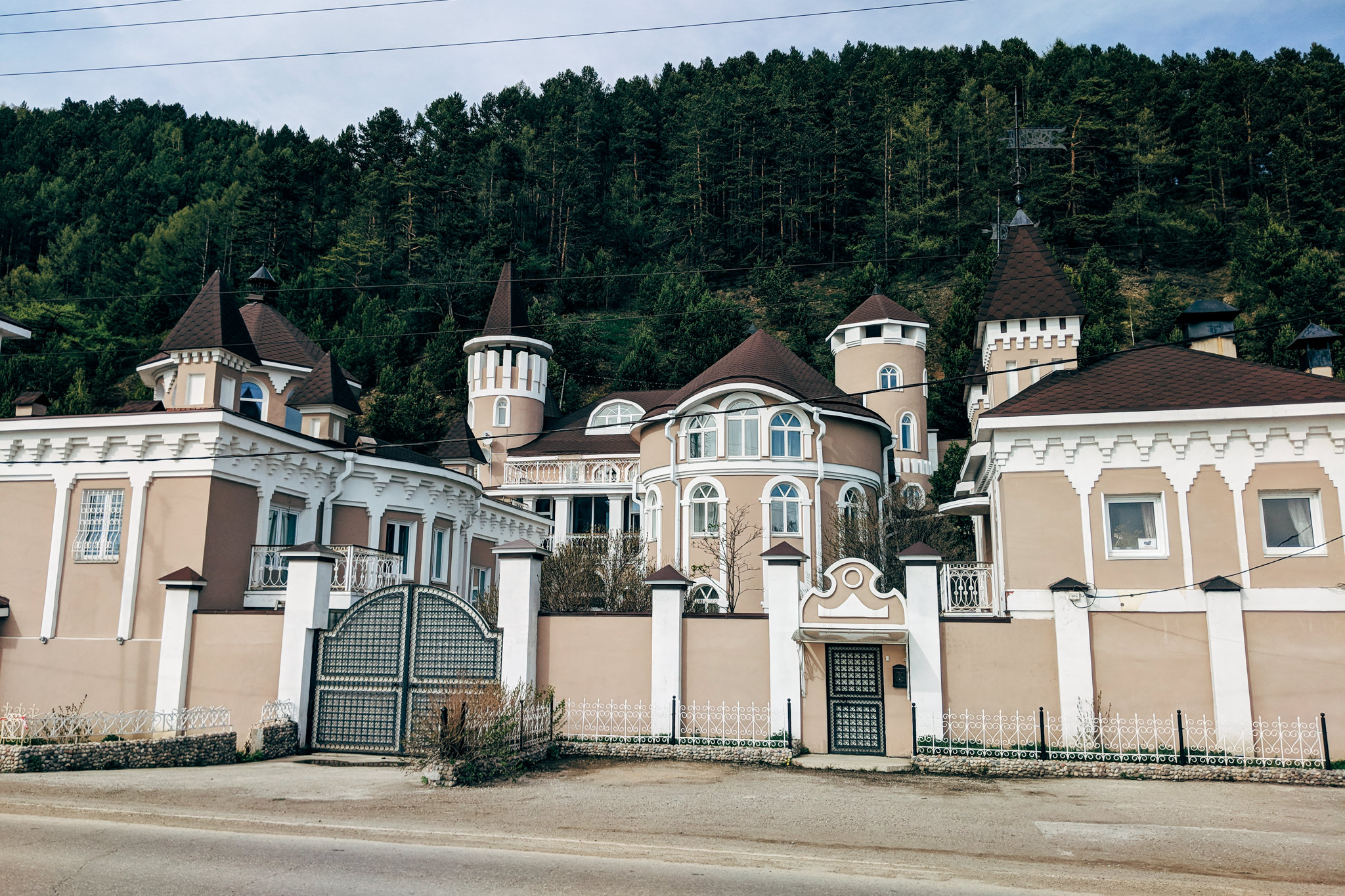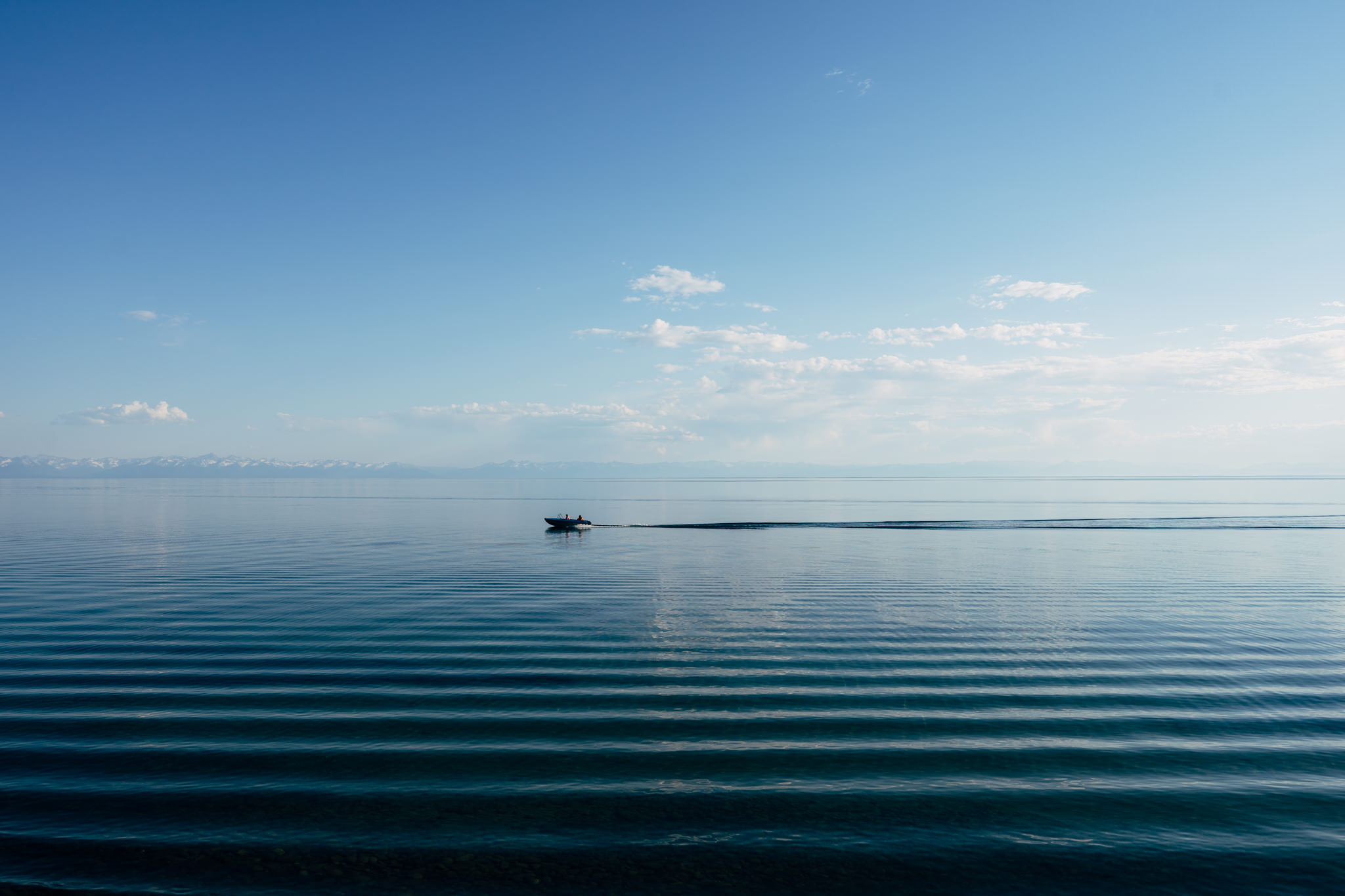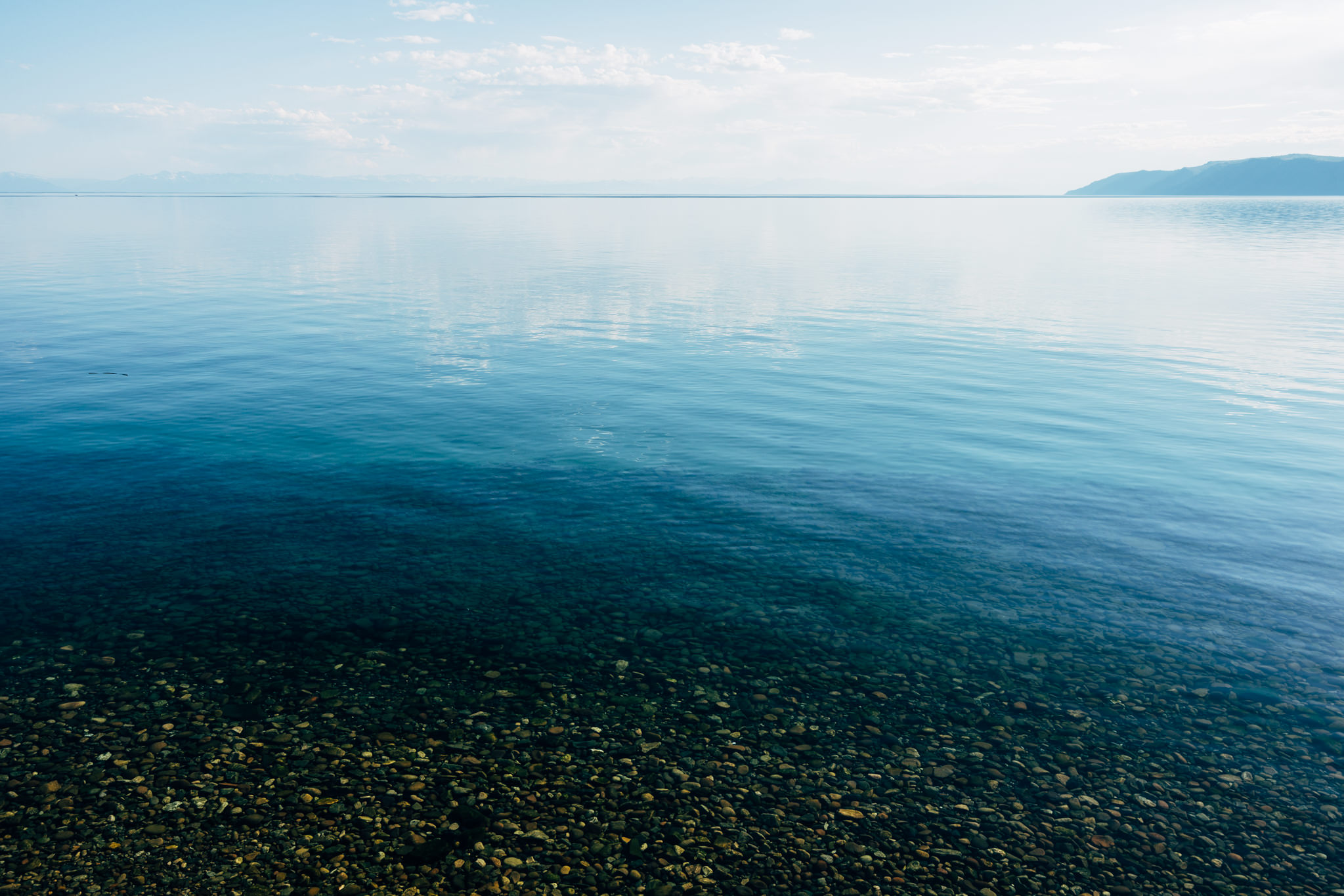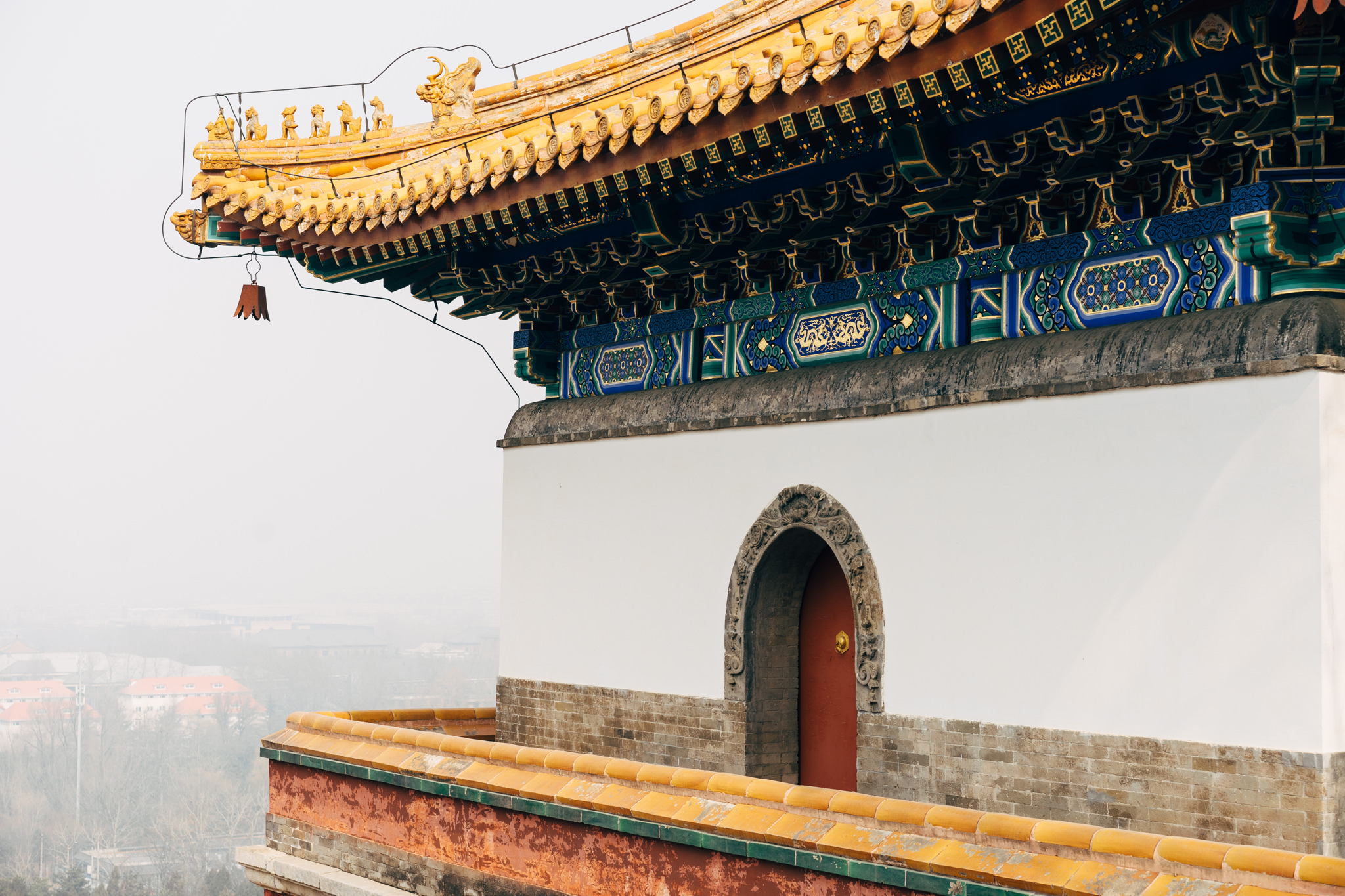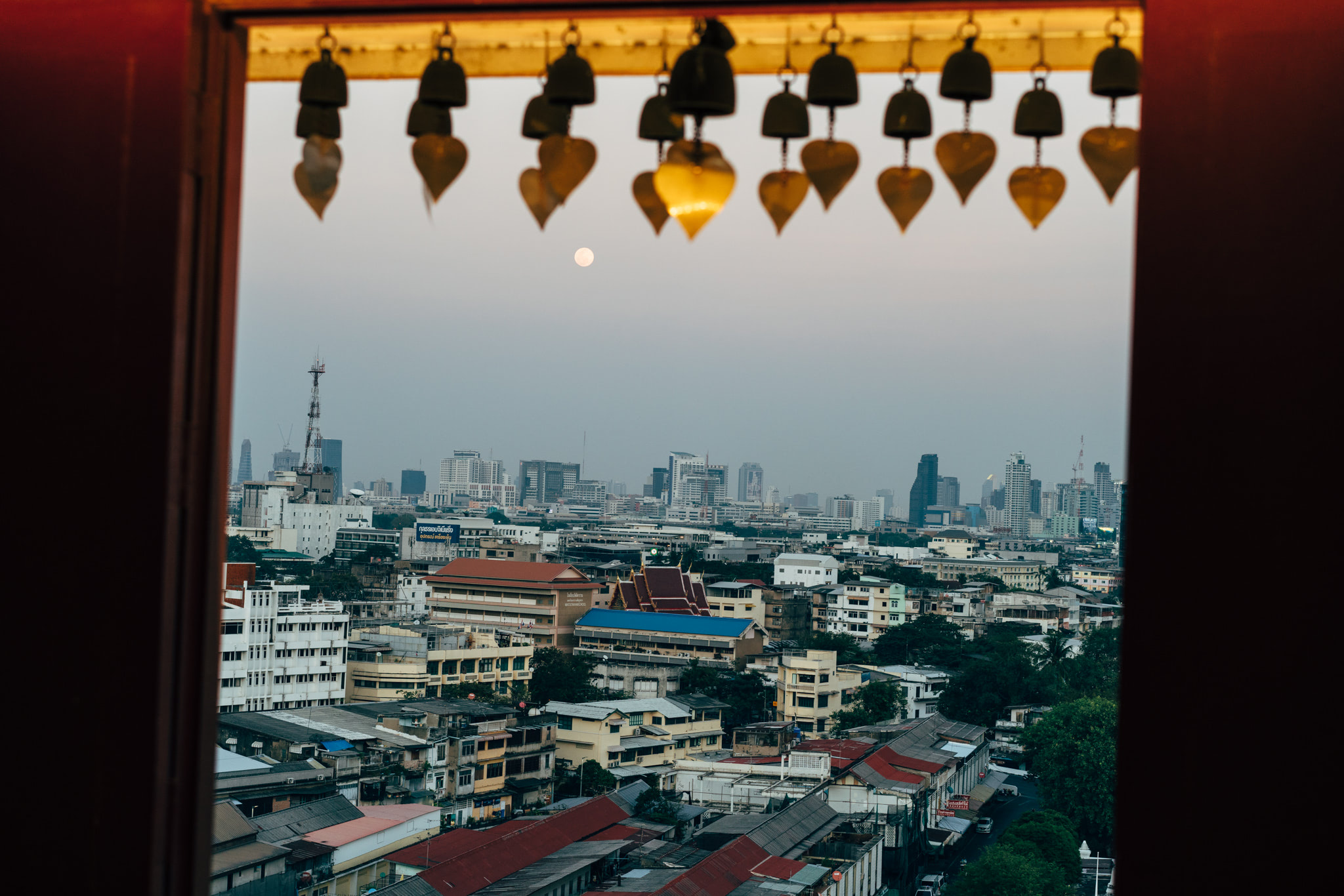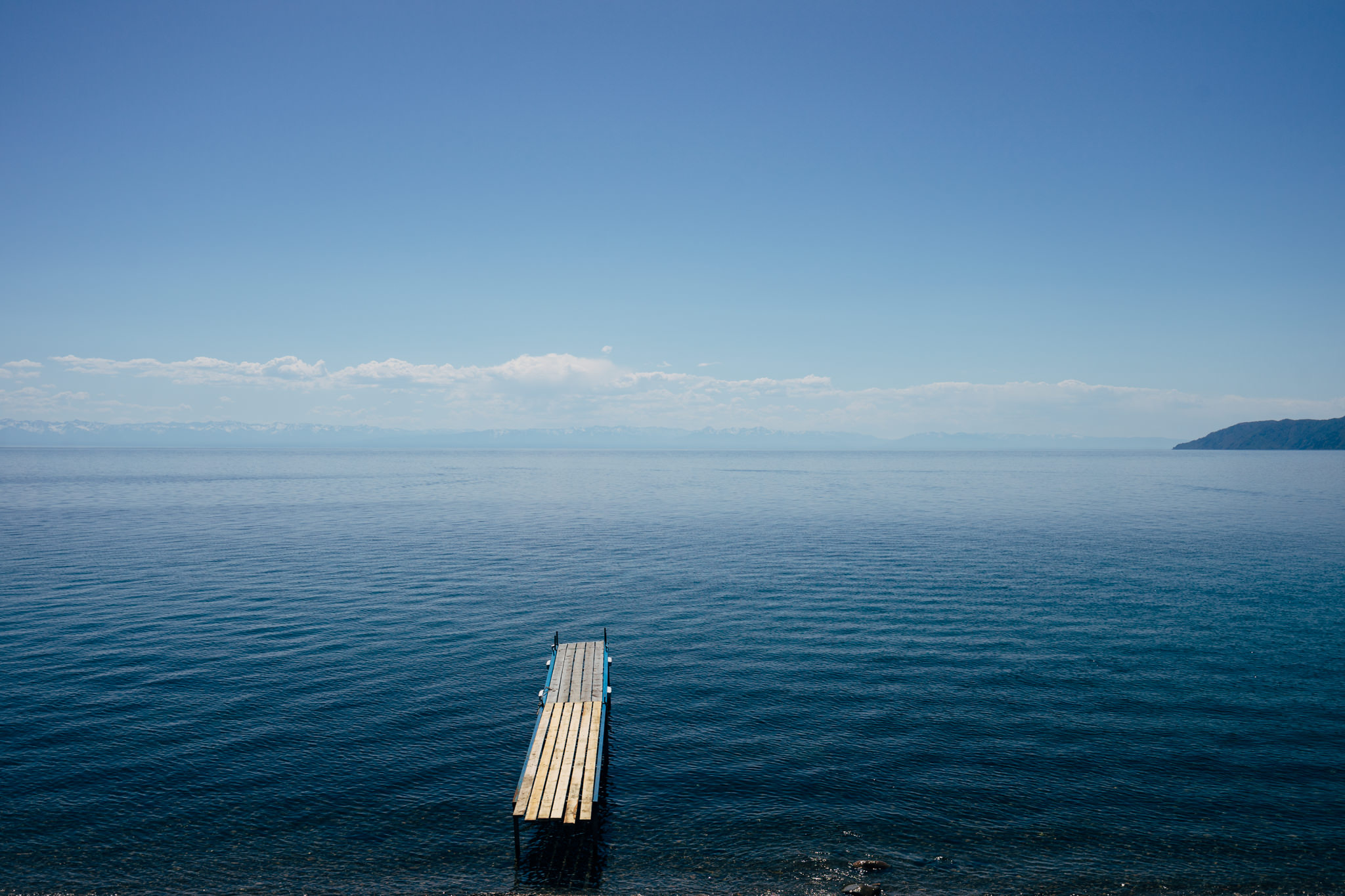
Lake Baikal
Located in Russia, more precisely in Siberia, is the largest fresh water lake in the world.
The surface of Lake Baikal stretches over 31,500 square kilometres, which corresponds approximately to the area of Belgium. It contains 23,600 cubic kilometers of water, 0.0017 percent of the total volume of water on Earth.
For comparison, the total water volume of the estimated 180,000 Finnish lakes, which is the reason for the nickname "Land of Thousand Lakes", is just a total of 235 cubic kilometers.
Lake Baikal is not only the largest freshwater lake, it is also the deepest with 1642 meters and with over 25 million years the oldest lake in the world. Since 1996 the Baikal region has been recognized as a UNESCO World Heritage Site.
In winter, the surface freezes for 4-5 months, so it is possible to walk and drive a car over it.
On the shore of Lake Baikal are several small villages and settlements. However, a large part of the shore of the lake is neither populated nor easily accessible. The largest city Irkutsk is situated 60 km away one the Angara River, which flows from Lake Baikal.
